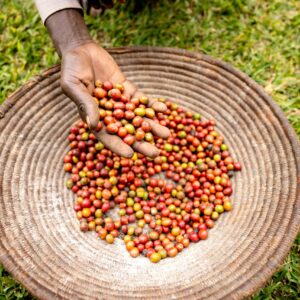F&B brands plan to boost innovation spend in 2025

Amid economic uncertainty, four out of five F&B brands reportedly still plan to boost innovation spend in 2025. According to a new survey from TraceGains, a UK-based provider of compliance, quality, and innovation solutions for the food and beverage (F&B) industry, innovation investment is rising rapidly with 83% of brands planning to boost new product development (NPD) spend this year, up from 76% in 2024, and over half of respondents say they will raise budgets by more than 10%. However, the importance of ESG appears to be declining as a major driver of innovation. Furthermore, the 2025 R&D and Product Innovation in the Food and Beverage Industry survey shows that only 2% of brands say their product development processes are fully digitized.
Manual processes undermine modernization
The online survey of 190 food and beverage leaders at small and large food brands worldwide was conducted from June 16 through July 21, 2025. According to TraceGains, despite growing investment in AI and digital tools, most F&B brands remain heavily reliant on outdated manual processes, slowing innovation and increasing risk.
• 82% of brands still use manual tools like spreadsheets, paper documents, or email to manage NPD.
• More than half (53%) don’t use a Product Lifecycle Management (PLM) system at all, slowing speed to market, increasing compliance risk, and hindering cross-functional collaboration.
• Just 2% of brands have fully digitized and automated their NPD workflows, underscoring the scale of the digital maturity gap in F&B.
The survey also found that AI usage in product innovation is gaining ground, but most brands are still in the early stages of experimentation:
• 17% of brands are “all in” on using AI to power NPD, up from 10% in 2024.
• Another 45% are experimenting, and only one third (32%) remain skeptical, dropping from 44% in 2024.
• Mid-sized companies (1,000-5,000 employees) are leading adoption, while smaller and larger firms show more hesitation.
• 25% of respondents cited analyzing market trends and consumer insights as their top AI use case.
Innovation investment clashes with cost and supply pressures
While innovation remains a strategic priority, cost pressures and supply chain instability are forcing many brands to slow or scale back.
• Nearly 70% of brands cite macroeconomic conditions as their top innovation barrier — up 15 points from 2024.
• More than half (53%) say production costs, including labour, are a major concern, and 50% are still struggling to secure key ingredients and materials.
• Among brands reducing their innovation pipeline, 41% attribute it to financial uncertainty and margin pressure.
Still sustainability focused but ESG lags
Despite headwinds, brands remain focused on better-for-you and sustainable innovation. TraceGains reports that this year’s top product development priority? Healthier food — named by 67% of respondents, up from 60% in 2024. Sustainable packaging (41%) and personalized nutrition (289%) are also key areas of interest. Enthusiasm for plant-based products is waning, with only 19% of brands identifying it as a top innovation focus, down sharply from 33% in 2024.
Despite sustainability regulations moving forward in many jurisdictions, TraceGains survey revealed that the importance of ESG seems to have fallen as a major driver of innovation, with relatively few brands citing sustainability-related themes as significant drivers of product development. On one hand, this aligns with themes from financial markets in 2023, in which ESG-oriented investments receded markedly under pressure from regulators, and amid growing skepticism about the legitimacy of “green” initiatives.
For brands that are continuing to embrace ESG projects (though not stated in the report, the percentage of coffee and tea brands continuing to implement EST projects remains quite high), the survey results echo responses from TraceGains’ 2023 ESG survey — companies are responding to a wide variety of ESG-related priorities, without a single, clear winner in terms of compelling industry focus. Approximately, 44% of teams cited traceability as an ongoing priority, a logical area of focus in that some degree of traceability is involved in many sustainability initiatives. However, responses on topics like sustainable ingredients, packaging, labour practices and carbon consumption were fairly distributed. All of those themes were important to a substantial subset of respondents, with none of them commanding the focus of a clear majority.
The survey found that in terms of sustainable efforts:
• 44% of brands are placing greater emphasis on supply chain traceability;
• 42% are using sustainable ingredients & creating more sustainable packaging;
• 37% are working to better understand their partner operations.
Within the coffee and tea industries, an overwhelming number of global brands remain committed to sustainability and ESG projects as evidenced in T&CTJ’s 4th Annual Sustainability issue.
To download the full TraceGains report, visit www.tracegains.com.
- Vanessa L Facenda, editor, Tea & Coffee Trade Journal, [email protected]






